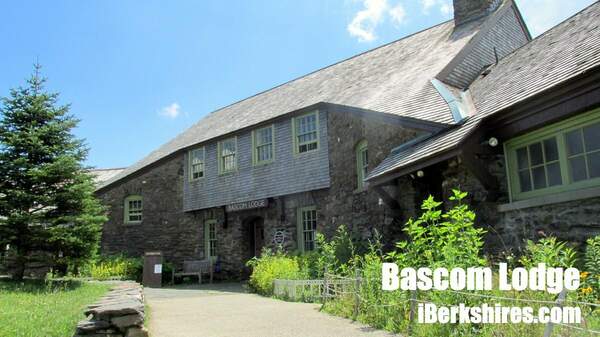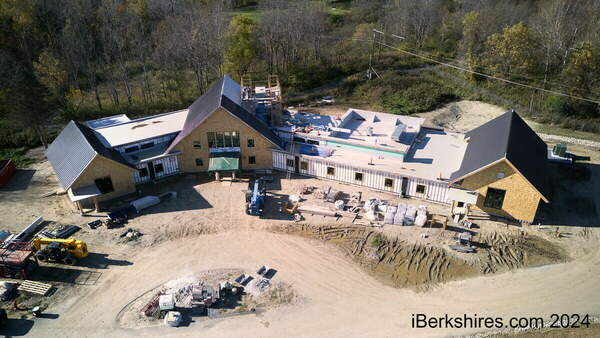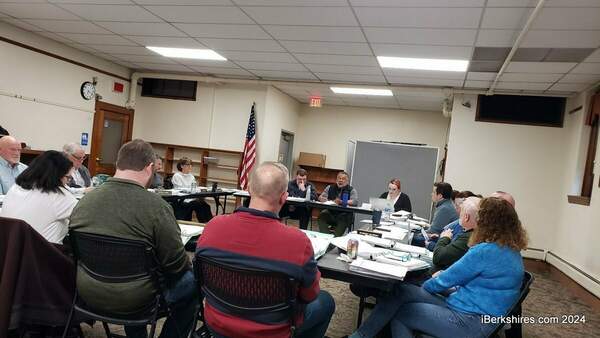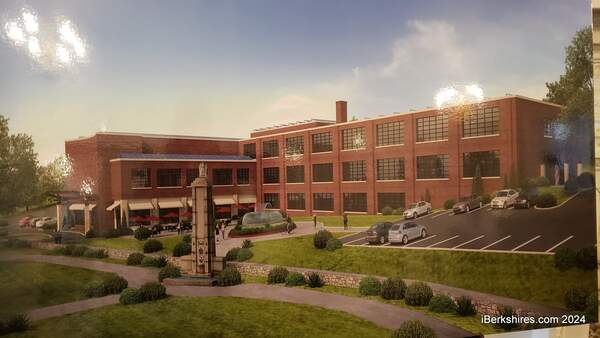Conservation Commission Approve Paving Project Without DEP's Blessings
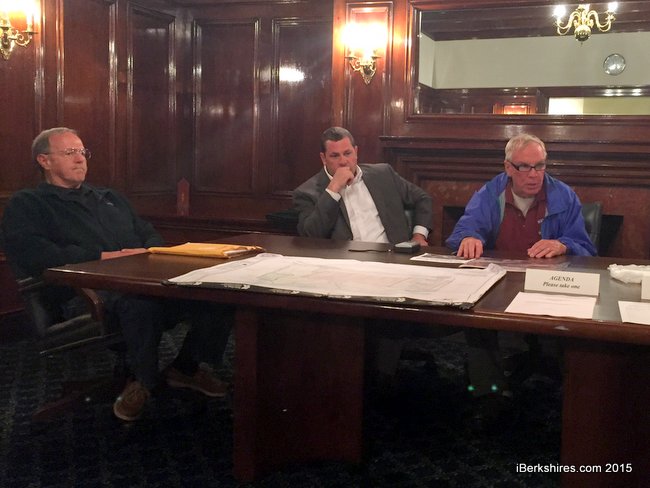 The Conservation Commission voted to allow a paving project in the Adams Corporate Park despite the state's possibility of appeal. The Conservation Commission voted to allow a paving project in the Adams Corporate Park despite the state's possibility of appeal. |
ADAMS, Mass. — The Conservation Commission approved the Adams Plumbing and Heating paving expansion project with the understanding that the project lies in a historic mill complex and is exempt from the riverfront protection act.
The commission voted 4-1 to approve the project Thursday night after hearing new findings from the applicant’s attorney Jeffrey Grandchamp that, contrary to what the Department of Environmental Protection believes, the property is located in a historic mill complex.
Grandchamp said the property in the Adams Corporate Park is associated with mills that were built before 1946, and is therefore classified as a historic mill complex.
"We can all agree the recognition that the Adams Print Works property was a mill in in existence prior to 1946," Grandchamp said. "It was used in manufacturing or mechanical processing, and if those qualifications are met the property is a historic mill complex."
Last week, the Conservation Commission agreed to hold off the vote at the request of the DEP, which believes the project must follow redevelopment standards because it does not fall into the historic mills' footprint.
Redevelopment standards request that the applicants make improvements to the riverfront if they are to alter it. Because there is no degraded land onsite, the developer can improve an area offsite. The applicants engineer James Scalise with SK Design said the applicant could provide the town with funds to improve a riverfront area offsite later.
DEP asked the commission to wait because it does not have a protocol for these money exchanges and wants to make sure the town uses the money on the riverfront and does not just hold onto it.
Scalise said he contacted DEP after the last meeting and it still requested that to avoid an appeal, the applicant finds a way to mitigate alterations on site. DEP officials did not like the idea of donating to the town. After looking at historical photos that show the mill on the parcel, the applicants brought in Grandchamp for an opinion.
Grandchamp provided the commission with the law and a case in which DEP appealed a similar project and made similar arguments and lost.
Grandchamp said DEP will most likely challenge the project and they will present them with the case and ask how it is different.
"I think we can persuade DEP if they decide this is a losing venture for them and they are better of spending their time perusing other things because we think that the law ... is absolutely clear," he said.
Scalise said he submitted plans earlier in September that classified the property as a historic mill complex but DEP disapproved it so he offered off-site mitigation. He asked to withdraw these mitigation offerings and return to his original plan.
"To do what DEP is asking us to do is unreasonable, and it’s not required by the regulations," Scalise said. "It is the decision of this applicant to follow the case law that we have presented that says it's not really required."
Commissioner James Fassell supported the project and said DEP was not being consistent. He said they approved the construction of the building that sits there now after the print works burned down in the 1980s.
"I am willing to back you because I have too much history in me to know that it wasn't a crazy place that needed to be redeveloped," Fassell said. "I cannot understand why all of the sudden white is black and black is white."
Commissioner Thomas Robinson agreed with Fassell but did not feel it was under the commission purview to classify the property as historical. He requested town counsel take a look at the information.
"I have a legal document in front of me that went to court and in front of judge, but how l do I know if this is a historic mill complex?" Robinson said. "I know it was there when I was born, I know it burnt down in the '80s, and I know it at least 100 years old but by this definition is it a historic mill complex? I don’t know."
Commissioner Cory Bishop asked how approving something the DEP would appeal would make the commission look.
Grandchamp said the commission is only making findings that declare the site historical. He added there still may be wetland mitigation, but the project should not be classified as redevelopment and has nothing to do with the riverfront protection act.
The only commissioner that voted against the project was Bishop. Commissioner David Lipinski was not present.
Tags: conservation commission, DEP, historical building, paving,


